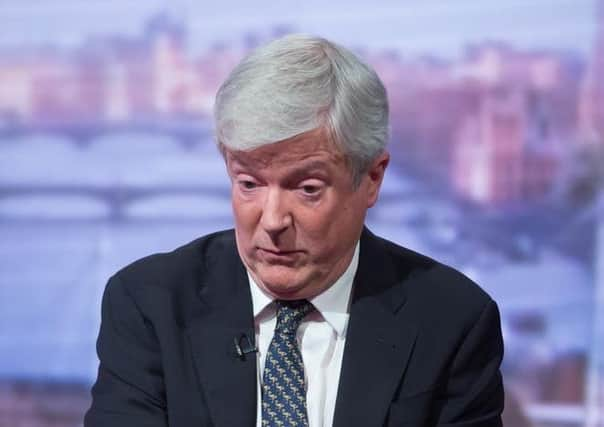‘Scrapping the licence fee will cost viewers more’


The crossbench peer said everybody paying something results in producing “great services for a lot less” than if a subscription model or other funding method was used.
He said the £145.50 charge still has another 10 years of life, claiming the corporation’s audience believes the case for the fee has strengthened.
Advertisement
Hide AdAdvertisement
Hide AdSpeaking on BBC1’s Andrew Marr Show, Lord Hall also said a “household tax” - as proposed by the Culture, Media and Sport Select Committee - is a “very interesting idea”.
He added there is broad agreement for the licence fee to be reformed to ensure “everyone is paying equally for it and I would go along with that”.
Lord Hall said the type of reform is up to the government to decide and the BBC to debate, adding: “It could be a household tax, I don’t know whether that works or not.
“We suggested ways of reforming it so whatever way you consume and use BBC services you can pay for it and I think somewhere in there lies a solution.”
The peer said he did not believe the corporation was a “market failure” public service broadcaster - adding this view is shared by audiences.
He said: “Our audiences, when you ask them, actually think that the case for the licence fee as a method of funding the BBC has gone up and has not gone down. That’s really important.
“And they believe in a high-quality BBC that’s producing excellent programmes right across a broad range of genres.”
When told the licence fee is regressive and anachronistic, Lord Hall said: “Culture Secretary John Whittingdale’s) own report published before the election said far from the licence fee being anachronistic, it’s actually got 10 years of life left in it at least.”
Advertisement
Hide AdAdvertisement
Hide AdHe went on: “Beyond that Andrew, you and I sitting here 10 years ago had no idea what an iPad was, had no idea about Net-flix, had no idea about Spotify.
“I’ll go along with the argument that’s it got 10 years life in it.
“And then it went on to say what the licence fee has got to do is what the licence fee has continually done since it was first invented, which is to adapt, to modernise, to change because - and this is the principle - by everybody paying something we all get great services for a lot less than if you went down a subscription model or some other route.”
On management pay-offs, Marr said the BBC wants a £125,000 cap while the government was aiming for £95,000.
Lord Hall said: “When I came in I was not at all happy with the level of payouts people were getting at the BBC.
“I put a cap on that at £150,000 in the first couple of months and that must continue.
“If the government reform, then we will have to think exactly about how we cap our pay-offs lower, too.”
He said changes at the corporation will have reduced costs by £1.5. billion by the end of 2016 - 40 per cent of its cost base.
Advertisement
Hide AdAdvertisement
Hide AdIn February, the House of Commons Culture, Media and Sport Select Committee said the TV licence does not have a long-term future and is likely to be replaced by a new levy within the next 15 years.
The fee is “becoming harder and harder to justify” given changes in the media, according to the committee.